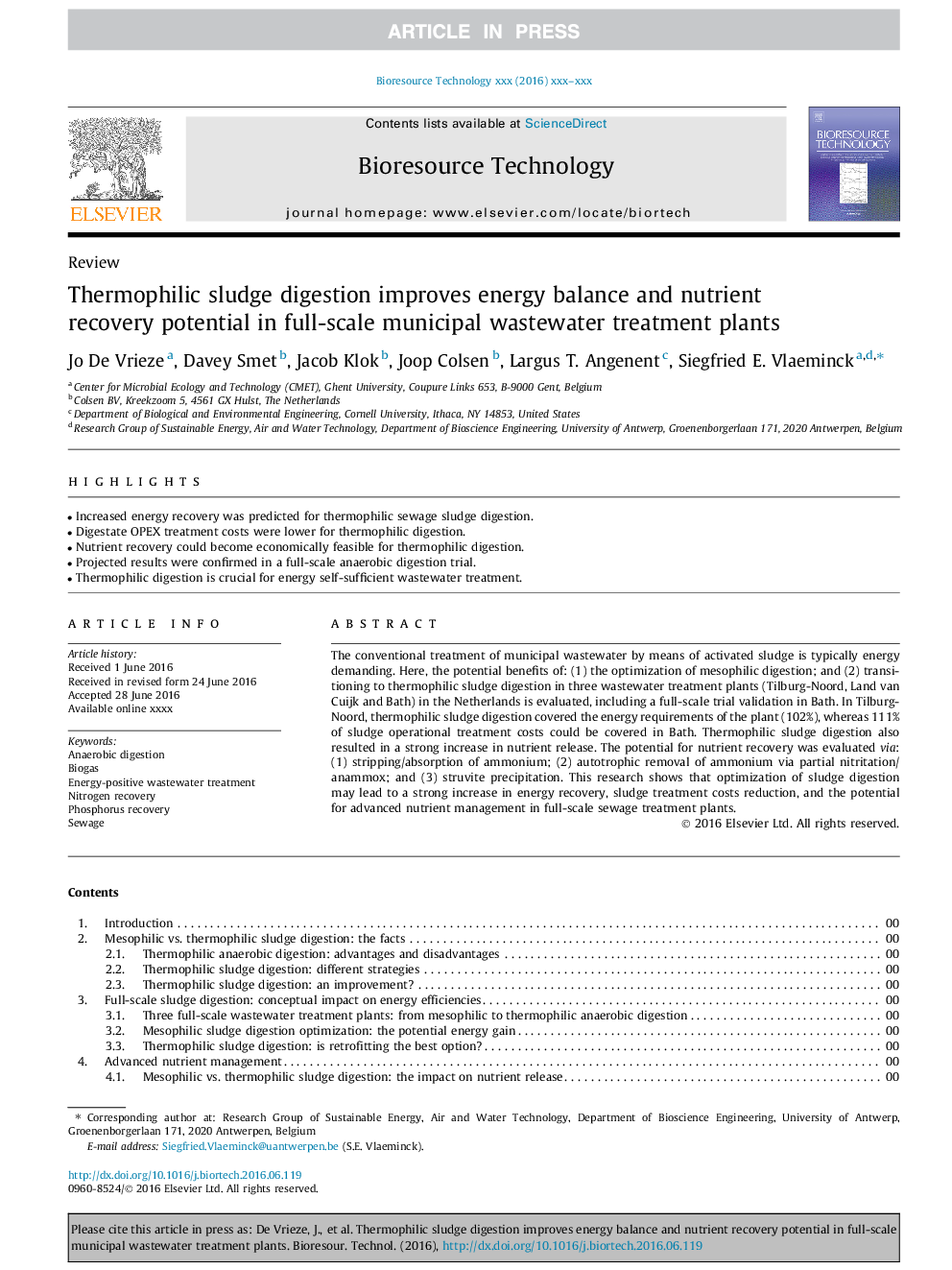| Article ID | Journal | Published Year | Pages | File Type |
|---|---|---|---|---|
| 7070159 | Bioresource Technology | 2016 | 9 Pages |
Abstract
The conventional treatment of municipal wastewater by means of activated sludge is typically energy demanding. Here, the potential benefits of: (1) the optimization of mesophilic digestion; and (2) transitioning to thermophilic sludge digestion in three wastewater treatment plants (Tilburg-Noord, Land van Cuijk and Bath) in the Netherlands is evaluated, including a full-scale trial validation in Bath. In Tilburg-Noord, thermophilic sludge digestion covered the energy requirements of the plant (102%), whereas 111% of sludge operational treatment costs could be covered in Bath. Thermophilic sludge digestion also resulted in a strong increase in nutrient release. The potential for nutrient recovery was evaluated via: (1) stripping/absorption of ammonium; (2) autotrophic removal of ammonium via partial nitritation/anammox; and (3) struvite precipitation. This research shows that optimization of sludge digestion may lead to a strong increase in energy recovery, sludge treatment costs reduction, and the potential for advanced nutrient management in full-scale sewage treatment plants.
Related Topics
Physical Sciences and Engineering
Chemical Engineering
Process Chemistry and Technology
Authors
Jo De Vrieze, Davey Smet, Jacob Klok, Joop Colsen, Largus T. Angenent, Siegfried E. Vlaeminck,
